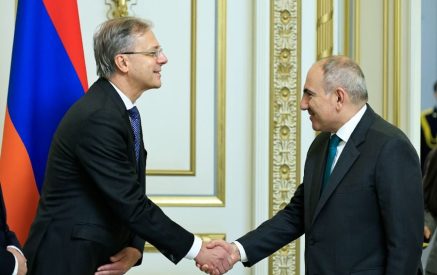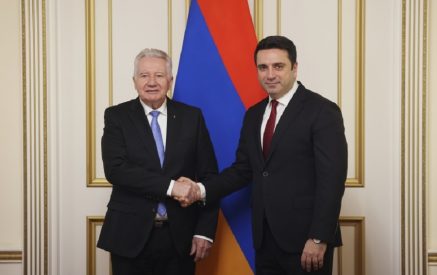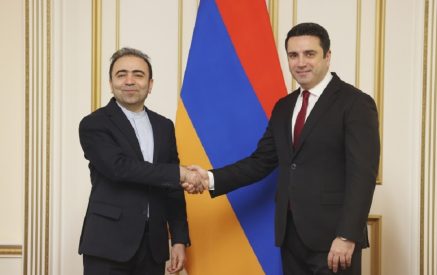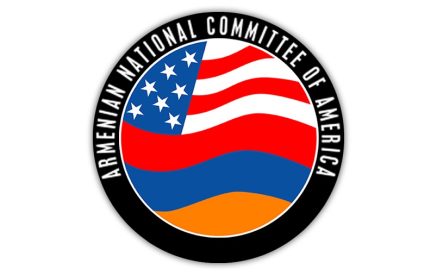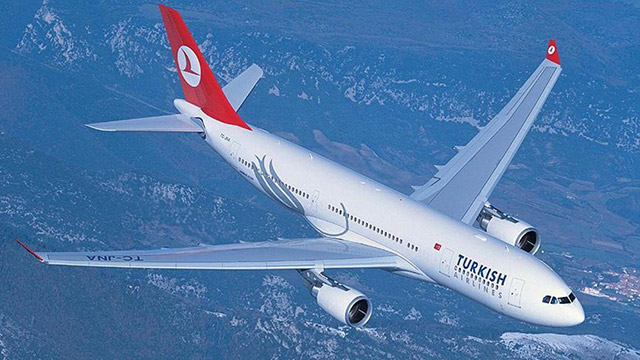By Harut Sassounian
Publisher, The California Courier
I just became aware that the Government of Turkey banned Armenian aircraft from overflying its air space as of a year ago. This was disclosed earlier this month by Hetq.am website’s investigative reporter Vahe Sarukhanyan.
Read also
I was surprised to hear this news. How could it be that the Turkish government banned Armenian-registered planes from flying over its air space and no Armenian official has bothered to inform the public? Even more surprising, a whole year after Turkey took such a hostile action, particularly during the recent war, the Armenian government did not reciprocate by banning Turkish flights over Armenian territory.
The last Armenian plane Turkey allowed to overfly its skies was on August 29, 2020. Beginning on Sept. 9, 2020, Turkey banned all Armenian flights from its skies. Interestingly, this was shortly before the joint Azeri and Turkish attack on Artsakh. Turkey subsequently rejected Armenian overflight requests on Sept. 18 and 25, 2020 and on March 19 and 23, 2021.
Hetq’s reporter contacted Armenia’s Civil Aviation Committee (CAC) to inquire if Armenia and Turkey had placed restrictions on their mutual airspace during and after last year’s war. “The CAC responded that Turkey has not published any air navigation information (NOTAM) [Notice to Airmen] banning the entry of Armenian-registered aircraft into its skies.” In other words, Turkey refused Armenian overflight rights without registering any formal objection. Thus, Turkey added a ban on air travel to its land blockade of Armenia.
In response to a question from Hetq on whether “Armenia had banned the entry of Turkish national aircraft, and if not, why not, the CAC replied that it has not imposed any restrictions in accordance with Article 9 (b) of the Chicago Convention on International Civil Aviation, stating that every Member State of the International Civil Aviation Organization (ICAO) cannot discriminate against the use of its airspace.” This is somewhat incorrect. Article 9(b) states that countries can restrict the use of their air space “on condition that such restriction or prohibition shall be applicable without distinction of nationality to aircraft of all other States.” How is it legal for Turkey to ban Armenian aircrafts and not legal for Armenia to do likewise?
I have been tracking the flight paths of various planes originating from Armenia, Azerbaijan and Turkey on the website “flightradar24.com,” which shows all flights around the world. I have made four interesting observations:
1) No Armenian-registered plane has flown over the territory of Turkey in the last 12 months as result of the Turkish ban.
2) Turkish Airlines, however, regularly fly over the Armenian air space on their way to Azerbaijan and beyond.
3) Turkey does not obstruct the flights of foreign airlines that travel to or from Armenia over Turkey, probably not to trigger a retaliatory ban by the governments of these airlines.
4) Armenia and Azerbaijan do not travel across each other’s air space even though there has been no formally-registered ban by either country.
Armenia’s Civil Aviation Committee told Radio Free Europe/Radio Liberty that it “is not in a position to challenge the Turkish ban in international aviation bodies. The Armenian Foreign Ministry did not clarify whether it has dealt with the matter.” Regrettably, the CAC did not explain why it is not willing to challenge Turkey’s ban of Armenian overflights. This is a major failure by Armenian officials.
Despite the negligent attitude of the Armenian government regarding the protection of Armenia’s national interests, Turkish airplanes, of their own volition, avoided flying over Armenia during the Artsakh War, preferring to carry their soldiers, military equipment and the Islamic Jihadist terrorists to Azerbaijan over the skies of the Republic of Georgia.
There are many such examples of the negligence and incompetence of Armenian officials leading one to wonder if there is a functioning government in Armenia. Two successive Foreign Ministers of Armenia have resigned since last fall. They could not accept the amateurish behavior of Prime Minister Nikol Pashinyan who unilaterally made all decisions on foreign policy without consulting his Foreign Ministry.
More surprisingly, after Pashinyan’s reappointment as Prime Minister, he has yet to appoint a new Foreign Minister, even though he is required to form the cabinet of ministers within five days of his appointment, a deadline that has passed long ago. The Foreign Ministry’s spokesman clarified that the five-day requirement applies to the appointment of two-thirds of the ministers, not the entire cabinet. However, the spokesman failed to explain why Pashinyan has managed to appoint all the other ministers, but not the Foreign Minister. One would think that, given Armenia’s critical situation after the war, appointing a Foreign Minister would have been one of his top priorities.
Since Pashinyan has ignored the input of the previous two foreign ministers, I suggest that he simply appoint himself as Foreign Minister in addition to being Prime Minister. Furthermore, since the Prime Minister has been running the government single-handedly, he should also get rid of the remaining ministers, establishing a one-man rule. All three branches of the government — executive, legislative and judiciary — are in the hands of the Prime Minister. The President of the country has no decision-making powers. He is a nominal leader, a figurehead. The Parliament, with a majority composed of Pashinyan’s political party, is basically a rubber stamp body which simply carries out his wishes. The judiciary is also under the heavy influence of the Prime Minister. Thus, there is no separation of powers, one of the key tenets of a democratic government.


































